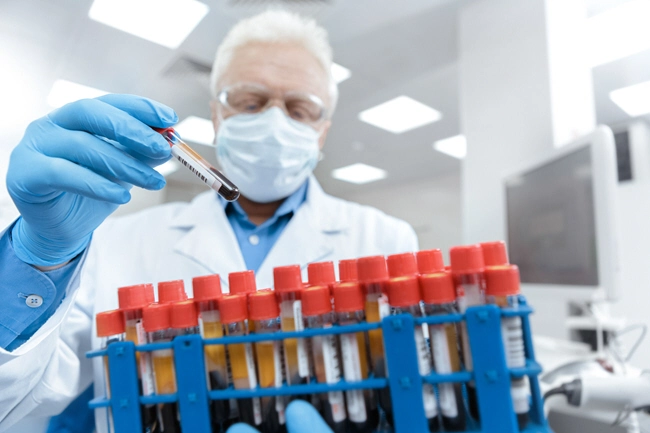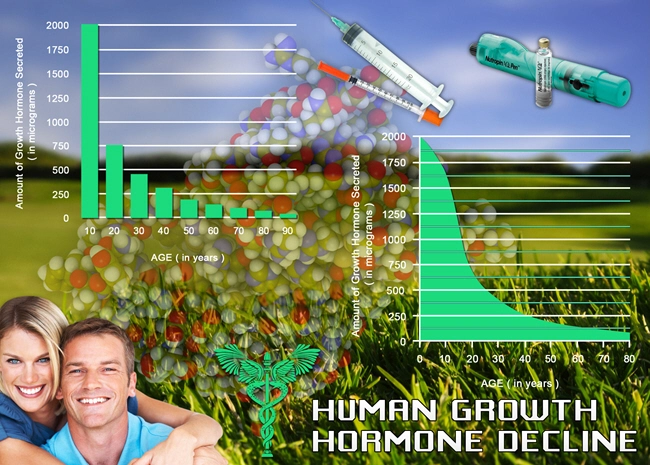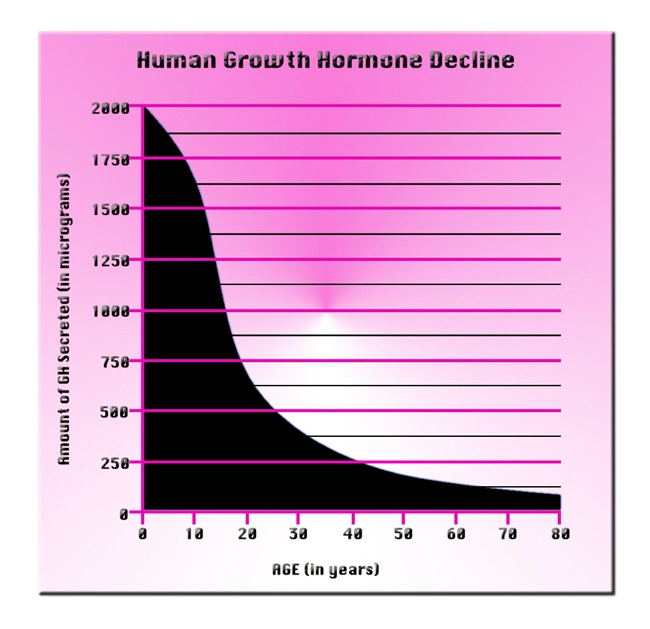
Introduction to Radiation-Induced Hypopituitarism
Radiation-induced hypopituitarism is a condition that can develop in men following radiation therapy, particularly when the treatment is directed near the pituitary gland. This critical endocrine organ, nestled at the base of the brain, is responsible for regulating various hormones that are essential for maintaining bodily functions. When exposed to radiation, the pituitary gland may suffer damage, leading to a decrease in hormone production and subsequent hypopituitarism. Understanding the patterns of hormone deficiency and the appropriate replacement approaches is crucial for managing this condition effectively in male patients.
Patterns of Hormone Deficiency
In men affected by radiation-induced hypopituitarism, the patterns of hormone deficiency can vary widely. The most commonly affected hormones include growth hormone (GH), luteinizing hormone (LH), follicle-stimulating hormone (FSH), adrenocorticotropic hormone (ACTH), and thyroid-stimulating hormone (TSH). The deficiency often follows a predictable sequence, with GH and gonadotropins (LH and FSH) being the first to decline, followed by ACTH and TSH. This sequential pattern is important for clinicians to recognize, as it can guide the timing and type of hormone replacement therapy needed.
Growth Hormone Deficiency
Growth hormone deficiency is frequently observed in men with radiation-induced hypopituitarism. Symptoms may include increased fat mass, reduced muscle mass, and decreased bone density. Replacement therapy with recombinant human GH can help mitigate these effects, improving body composition and quality of life. However, careful monitoring is required to avoid potential side effects such as fluid retention and joint pain.
Gonadotropin Deficiency
Deficiency in LH and FSH leads to hypogonadism, characterized by low testosterone levels. Symptoms in men can manifest as decreased libido, erectile dysfunction, fatigue, and mood changes. Testosterone replacement therapy is a common approach to manage these symptoms. Options include intramuscular injections, transdermal patches, or gels. Regular monitoring of testosterone levels and potential side effects, such as erythrocytosis and sleep apnea, is essential.
Adrenocorticotropic Hormone Deficiency
ACTH deficiency results in secondary adrenal insufficiency, which can be life-threatening if not addressed. Symptoms may include fatigue, weight loss, and hypotension. Cortisol replacement with hydrocortisone is the standard treatment. Patients must be educated on the importance of adjusting their dose during times of stress or illness to prevent adrenal crisis.
Thyroid-Stimulating Hormone Deficiency
TSH deficiency leads to secondary hypothyroidism, with symptoms such as fatigue, cold intolerance, and weight gain. Levothyroxine replacement therapy is effective in managing this condition. Regular monitoring of thyroid function tests is necessary to ensure optimal dosing and to prevent complications such as osteoporosis.
Therapeutic Strategies and Monitoring
Effective management of radiation-induced hypopituitarism in men requires a tailored approach to hormone replacement therapy. Regular monitoring of hormone levels and clinical symptoms is crucial to adjust treatments as needed. Collaboration between endocrinologists and other healthcare providers is essential to address the multifaceted nature of this condition.
Conclusion
Radiation-induced hypopituitarism presents a significant challenge for men who have undergone radiation therapy. By understanding the patterns of hormone deficiency and implementing appropriate replacement strategies, healthcare providers can significantly improve the quality of life for affected individuals. Ongoing research and clinical vigilance are vital to refine these therapeutic approaches and ensure the best possible outcomes for men with this condition.
Contact Us Today For A Free Consultation
Dear Patient,
Once you have completing the above contact form, for security purposes and confirmation, please confirm your information by calling us.
Please call now: 1-800-380-5339.
Welcoming You To Our Clinic, Professor Tom Henderson.

- Optimizing Testosterone Levels: The Role of Clomiphene Citrate in Treating Secondary Hypogonadism in American Men [Last Updated On: February 21st, 2025] [Originally Added On: February 21st, 2025]
- Multimodal Endocrine Evaluation Crucial for Addressing Fatigue in American Men [Last Updated On: March 4th, 2025] [Originally Added On: March 4th, 2025]
- The Impact of Insulin Resistance on Male Hormonal Health: Strategies for Management [Last Updated On: March 7th, 2025] [Originally Added On: March 7th, 2025]
- The Role of Vitamin D in Male Hormonal Health: Implications for Testosterone Optimization [Last Updated On: March 8th, 2025] [Originally Added On: March 8th, 2025]
- Optimizing Health: Understanding the Cortisol-to-Testosterone Ratio for Personalized Hormone Therapy [Last Updated On: March 9th, 2025] [Originally Added On: March 9th, 2025]
- Unveiling the Potential of Neurosteroid Modulation in Managing Stress-Induced Endocrine Disorders in American Men [Last Updated On: March 12th, 2025] [Originally Added On: March 12th, 2025]
- Exploring hCG Monotherapy and Exogenous Testosterone in Young Men with Hypogonadotropic Hypogonadism: A Focus on Testicular Function [Last Updated On: March 13th, 2025] [Originally Added On: March 13th, 2025]
- Advancements in Male Endocrine Health: The Role of Selective Androgen Receptor Modulators (SARMs) [Last Updated On: March 13th, 2025] [Originally Added On: March 13th, 2025]
- Exploring the Role of Oxytocin in Male Endocrinology: From Physiology to Therapy [Last Updated On: March 15th, 2025] [Originally Added On: March 15th, 2025]
- Precision Medicine in Endocrinology: Tailoring HRT for American Men's Health [Last Updated On: March 16th, 2025] [Originally Added On: March 16th, 2025]
- Thyroid-Testicular Axis: Hormonal Interactions and Male Health Implications [Last Updated On: March 18th, 2025] [Originally Added On: March 18th, 2025]
- Zinc, Selenium, Magnesium: Essential for American Men's Hormonal Health [Last Updated On: March 19th, 2025] [Originally Added On: March 19th, 2025]
- Adipokines' Role in Male Endocrine Health: Insights and Therapeutic Potential for American Men [Last Updated On: March 19th, 2025] [Originally Added On: March 19th, 2025]
- Gut Microbiome's Role in Male Steroid Hormone Metabolism: Emerging Insights [Last Updated On: March 19th, 2025] [Originally Added On: March 19th, 2025]
- Mitochondrial Health and Male Hormones: Therapeutic Strategies for Age-Related Decline [Last Updated On: March 20th, 2025] [Originally Added On: March 20th, 2025]
- Chronobiology's Impact on Male Hormone Testing and Replacement Therapy in American Men [Last Updated On: March 21st, 2025] [Originally Added On: March 21st, 2025]
- Endocrine Disrupting Chemicals: Impact on Male Reproductive Health and Mitigation Strategies [Last Updated On: March 21st, 2025] [Originally Added On: March 21st, 2025]
- Inflammaging and Endocrine Senescence: Impact on Male Hormones and Holistic Management Strategies [Last Updated On: March 21st, 2025] [Originally Added On: March 21st, 2025]
- Pharmacogenomics in HRT: Personalizing Testosterone Therapy for Men with Hypogonadism [Last Updated On: March 22nd, 2025] [Originally Added On: March 22nd, 2025]
- Somatostatin Analogues: Versatile Applications in Male Endocrinology and Health [Last Updated On: March 22nd, 2025] [Originally Added On: March 22nd, 2025]
- Pituitary Incidentalomas in American Men: Evaluation, Management, and Long-Term Care [Last Updated On: March 22nd, 2025] [Originally Added On: March 22nd, 2025]
- Managing Polycythemia in Testosterone Therapy: Monitoring and Evidence-Based Strategies [Last Updated On: March 22nd, 2025] [Originally Added On: March 22nd, 2025]
- Exercise Impact on Male Hormones: Enhancing Health and Therapy [Last Updated On: March 22nd, 2025] [Originally Added On: March 22nd, 2025]
- Optimizing Bone Health: BMD Monitoring Protocols for Men on HRT in the US [Last Updated On: March 23rd, 2025] [Originally Added On: March 23rd, 2025]
- Modulating Ghrelin System Enhances Weight Management in Hypogonadal Men on Testosterone Therapy [Last Updated On: March 23rd, 2025] [Originally Added On: March 23rd, 2025]
- Energy Balance and Reproductive Health in American Men: Neuroendocrine Insights and Clinical Impacts [Last Updated On: March 23rd, 2025] [Originally Added On: March 23rd, 2025]
- Metabolomics Revolutionizes Male Endocrine Health Diagnostics and Management [Last Updated On: March 23rd, 2025] [Originally Added On: March 23rd, 2025]
- Sarcopenia in Aging Males: Hormone Optimization and Lifestyle Integration for Muscle Health [Last Updated On: March 23rd, 2025] [Originally Added On: March 23rd, 2025]
- Advancements in Androgen Receptor Sensitivity Assessment Enhance Personalized HRT for American Men [Last Updated On: March 23rd, 2025] [Originally Added On: March 23rd, 2025]
- SHBG's Impact on Male Health: Hormonal, Metabolic, and Cardiovascular Insights [Last Updated On: March 23rd, 2025] [Originally Added On: March 23rd, 2025]
- Hormone Replacement Therapy: Enhancing Cognitive Function in American Men [Last Updated On: March 23rd, 2025] [Originally Added On: March 23rd, 2025]
- Longitudinal Epigenetic Changes from Hormone Replacement Therapy in American Men [Last Updated On: March 23rd, 2025] [Originally Added On: March 23rd, 2025]
- NAFLD's Bidirectional Impact on Male Endocrine Health: Treatment and Management Strategies [Last Updated On: March 24th, 2025] [Originally Added On: March 24th, 2025]
- Obstructive Sleep Apnea's Endocrine Effects in American Men: Beyond Testosterone [Last Updated On: March 24th, 2025] [Originally Added On: March 24th, 2025]
- Diurnal Hormone Variations in Males: Diagnosis, Treatment, and Future Research [Last Updated On: March 24th, 2025] [Originally Added On: March 24th, 2025]
- Leptin Resistance in Men: Causes, Effects, and Targeted Interventions [Last Updated On: March 24th, 2025] [Originally Added On: March 24th, 2025]
- Luteinizing Hormone: Key Diagnostic and Therapeutic Insights in Male Endocrinology [Last Updated On: March 24th, 2025] [Originally Added On: March 24th, 2025]
- Male Biological Clock: Endocrine Changes and Reproductive Health Impacts with Age [Last Updated On: March 24th, 2025] [Originally Added On: March 24th, 2025]
- Biomarkers in Male Endocrinology: Growth Factors and Cytokines for Diagnosis and Treatment [Last Updated On: March 25th, 2025] [Originally Added On: March 25th, 2025]
- Subclinical Endocrinopathies in American Men: Detection and Management Strategies [Last Updated On: March 25th, 2025] [Originally Added On: March 25th, 2025]
- Male Climacteric Syndrome: Diagnosis, HRT, and Holistic Management for Aging Men [Last Updated On: March 25th, 2025] [Originally Added On: March 25th, 2025]
- Vasopressin's Therapeutic Roles in Male Endocrinology: From Fertility to Cardiovascular Health [Last Updated On: March 25th, 2025] [Originally Added On: March 25th, 2025]
- Testosterone's Role in Managing Autoimmune Diseases in American Men: Clinical Insights [Last Updated On: March 25th, 2025] [Originally Added On: March 25th, 2025]
- Multimarker Approach to Assess Cardiometabolic Risk in American Men on HRT [Last Updated On: March 25th, 2025] [Originally Added On: March 25th, 2025]
- TRT and Prostate Health: Risks, Monitoring, and Management Strategies [Last Updated On: March 25th, 2025] [Originally Added On: March 25th, 2025]
- ECS Influence on Male Reproductive Endocrinology: Insights for American Men's Health [Last Updated On: March 26th, 2025] [Originally Added On: March 26th, 2025]
- Endocrine Frailty in Aging Men: Holistic Management and Preventive Strategies [Last Updated On: March 26th, 2025] [Originally Added On: March 26th, 2025]
- INSL3: A Stable Biomarker for Assessing Leydig Cell Function in Male Health [Last Updated On: March 26th, 2025] [Originally Added On: March 26th, 2025]
- AMH's Expanding Role in Male Endocrinology: Fertility, Disorders, and Beyond [Last Updated On: March 26th, 2025] [Originally Added On: March 26th, 2025]
- Hormone Measurements in Men: Total vs. Free Levels and Clinical Implications [Last Updated On: March 26th, 2025] [Originally Added On: March 26th, 2025]
- Opioid-Induced Endocrinopathy in Men: Mechanisms, Impacts, and Management Strategies [Last Updated On: March 26th, 2025] [Originally Added On: March 26th, 2025]
- Endocrine Reserve Testing: Assessing Hormonal Health in American Men [Last Updated On: March 27th, 2025] [Originally Added On: March 27th, 2025]
- HRT's Impact on Telomere Length: A New Frontier in Male Aging Research [Last Updated On: March 27th, 2025] [Originally Added On: March 27th, 2025]
- Managing HPT Axis Recovery Post-Testosterone in American Males: A Clinical Guide [Last Updated On: March 27th, 2025] [Originally Added On: March 27th, 2025]
- Genetic Insights Revolutionize Male Hypogonadism Diagnosis and Treatment in American Men [Last Updated On: March 27th, 2025] [Originally Added On: March 27th, 2025]
- Endocrine Sequelae of Traumatic Brain Injury in American Men: Management and Follow-Up [Last Updated On: March 27th, 2025] [Originally Added On: March 27th, 2025]
- Post-Traumatic Hypopituitarism in American Men: Diagnosis, Management, and Holistic Care [Last Updated On: March 28th, 2025] [Originally Added On: March 28th, 2025]
- Neuropeptide Y: Key Regulator in Male Endocrine and Metabolic Health [Last Updated On: March 29th, 2025] [Originally Added On: March 29th, 2025]
- Inhibin B: Key Biomarker for Male Reproductive Health and Fertility Assessment [Last Updated On: March 30th, 2025] [Originally Added On: March 30th, 2025]
- Endocrine Disruption in Men Post-Chemotherapy: Monitoring and Intervention Strategies [Last Updated On: March 31st, 2025] [Originally Added On: March 31st, 2025]
- Managing Endocrine Disruptions in Men with Chronic Kidney Disease: Adaptations and Therapies [Last Updated On: April 2nd, 2025] [Originally Added On: April 2nd, 2025]
- Hemochromatosis in American Men: Endocrine Effects, Screening, and Management Strategies [Last Updated On: April 3rd, 2025] [Originally Added On: April 3rd, 2025]
- Hyperparathyroidism's Impact on Male Reproductive Health: Diagnosis, Treatment, and Management [Last Updated On: April 3rd, 2025] [Originally Added On: April 3rd, 2025]
- Osteoporosis in Men: Causes, Endocrine Evaluation, and Holistic Management Strategies [Last Updated On: April 7th, 2025] [Originally Added On: April 7th, 2025]
- Adrenal Incidentalomas in Men: Evaluation, Management, and Endocrine Focus [Last Updated On: April 8th, 2025] [Originally Added On: April 8th, 2025]
- Cushing's Syndrome in American Men: Symptoms, Diagnosis, and Tailored Management Strategies [Last Updated On: April 9th, 2025] [Originally Added On: April 9th, 2025]
- Hormone Therapy Protocols for Transgender Men: Endocrinology and Monitoring Guidelines [Last Updated On: April 9th, 2025] [Originally Added On: April 9th, 2025]
- Endocrine Management of Male Sexual Desire Disorders in American Men: HRT and PDE5 Inhibitors [Last Updated On: April 9th, 2025] [Originally Added On: April 9th, 2025]
- Growth Hormone and IGF-1: Enhancing Male Athletic Performance and Recovery [Last Updated On: April 9th, 2025] [Originally Added On: April 9th, 2025]
- Hormonal Factors in Male SUI: Insights and Therapeutic Strategies for American Men [Last Updated On: April 10th, 2025] [Originally Added On: April 10th, 2025]
- Exploring Male Hormonal Contraception: Mechanisms, Clinical Trials, and Future Prospects [Last Updated On: April 11th, 2025] [Originally Added On: April 11th, 2025]
- Hormone Replacement Therapy: Preserving Male Fertility Amidst Medical Challenges [Last Updated On: April 11th, 2025] [Originally Added On: April 11th, 2025]
- Enhancing Men's Endocrine Resilience: Biological Mediators and Holistic Strategies [Last Updated On: April 12th, 2025] [Originally Added On: April 12th, 2025]
- AI-Driven Precision Endocrinology: Revolutionizing Male Hormone Therapy [Last Updated On: April 14th, 2025] [Originally Added On: April 14th, 2025]
- Androgen Action: Molecular Insights and Therapeutic Implications for Men's Health [Last Updated On: April 14th, 2025] [Originally Added On: April 14th, 2025]
- CGM: Revolutionizing Endocrinology for Men Beyond Diabetes Management [Last Updated On: April 14th, 2025] [Originally Added On: April 14th, 2025]
- Telehealth Revolutionizes Hormone Replacement Therapy for American Men [Last Updated On: April 15th, 2025] [Originally Added On: April 15th, 2025]
- Cost-Effectiveness of Hormone Replacement Therapy Options for American Men [Last Updated On: April 15th, 2025] [Originally Added On: April 15th, 2025]
- Wearable Tech Advances Hormone Monitoring for American Males in HRT [Last Updated On: April 16th, 2025] [Originally Added On: April 16th, 2025]
- Male Hormone Therapy: Balancing Personalization and Safety in Compounded Treatments [Last Updated On: April 16th, 2025] [Originally Added On: April 16th, 2025]








